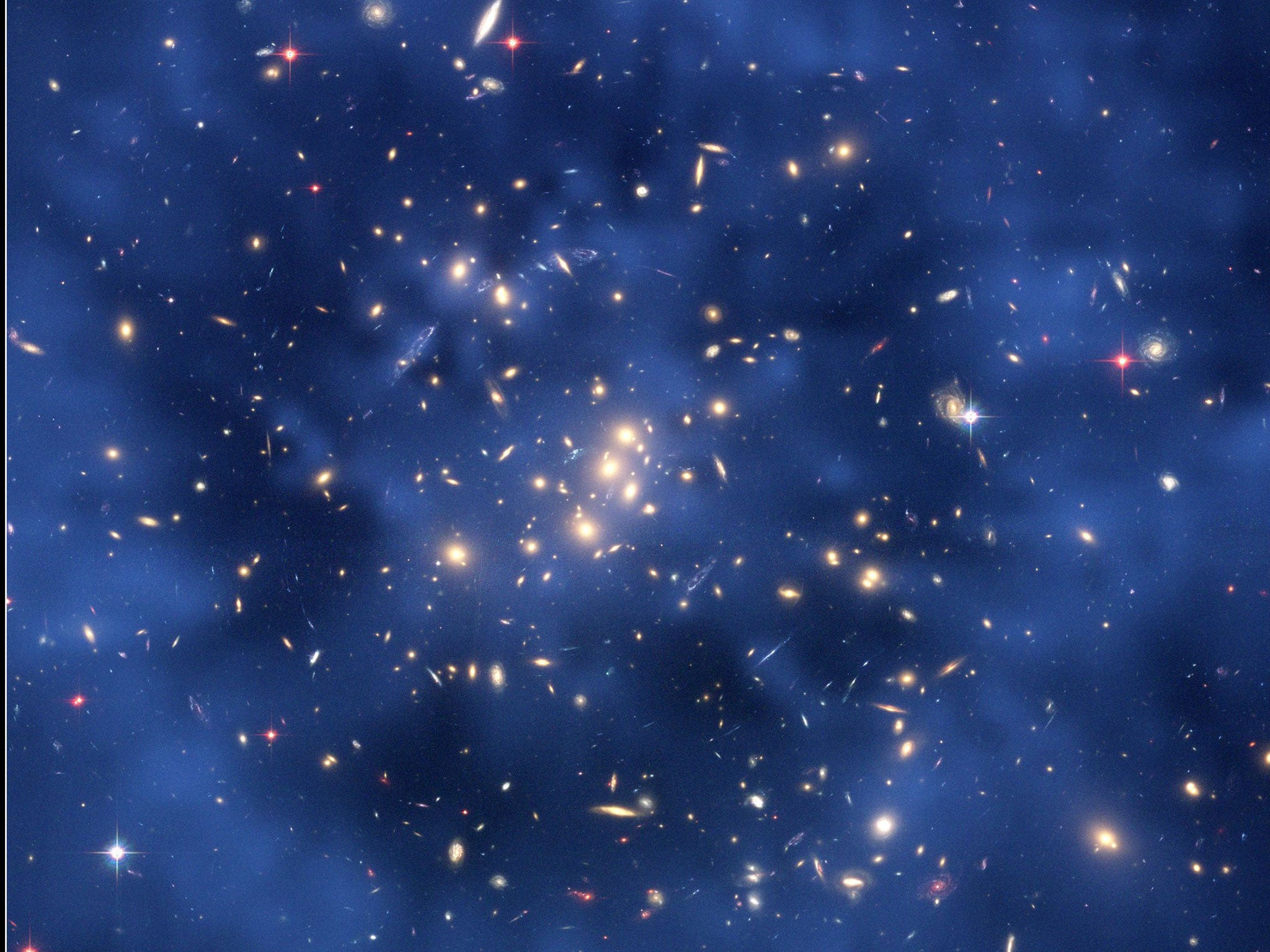Hypothetical particle may get to the heart of universe's dark matter
University of Southampton researchers believe one reason may be that dark matter particles are much lighter than has previously been proposed

Your support helps us to tell the story
From reproductive rights to climate change to Big Tech, The Independent is on the ground when the story is developing. Whether it's investigating the financials of Elon Musk's pro-Trump PAC or producing our latest documentary, 'The A Word', which shines a light on the American women fighting for reproductive rights, we know how important it is to parse out the facts from the messaging.
At such a critical moment in US history, we need reporters on the ground. Your donation allows us to keep sending journalists to speak to both sides of the story.
The Independent is trusted by Americans across the entire political spectrum. And unlike many other quality news outlets, we choose not to lock Americans out of our reporting and analysis with paywalls. We believe quality journalism should be available to everyone, paid for by those who can afford it.
Your support makes all the difference.A completely new type of fundamental particle may explain the mystery of “dark matter”, the missing material that makes up more than 80 per cent of the universe’s mass, British scientists believe.
Dark matter reveals itself in the way its gravity affects stars and galaxies, but has never been directly observed.
University of Southampton researchers believe one reason may be that dark matter particles are much lighter than has previously been proposed, with the mass of only 0.02 per cent of an electron. Their findings are published in the journal Scientific Reports.
Dr James Bateman said: “Our candidate particle sounds crazy, but currently there seem to be no experiments or observations which could rule it out.”
But despite extensive efforts the mysterious material has never been directly observed.
The new research suggests one reason for this may be that dark matter particles are much lighter than has previously been proposed.
The hypothetical particle has a mass only about 0.02 per cent that of an electron. While it does not interact with light, it interacts surprisingly strongly with normal matter, and may not even be able to penetrate the Earth's atmosphere.
If this is the case, dark matter particles are unlikely to be spotted by Earth-bound detectors.
Dr James Bateman, from the department of physics and astronomy at the University of Southampton, said: "This work brings together some very different areas of physics: theoretical particle physics, observational X-ray astronomy, and experimental quantum optics.
"Our candidate particle sounds crazy, but currently there seem to be no experiments or observations which could rule it out. Dark matter is one of the most important unsolved problems in modern physics, and we hope that our suggestion will inspire others to develop detailed particle theory and even experimental tests."
The team, whose findings are published in the journal Scientific Reports, hope to incorporate a search for the new particle into a space experiment with which it is already involved.
MAQRO (Macroscopic Quantum Resonators) will aim to test quantum phenomena - the weird behaviour of subatomic particles - at larger scales.
As part of the experiment, a nanoparticle suspended in space will be used to see if its position is altered by the flow of dark matter.
Co-author Dr Alexander Merle, from the Max Planck Institute in Munich, Germany, said: "At the moment, experiments on dark matter do not point into a clear direction and, given that also the Large Hadron Collider (LHC) at Cern has not found any signs of new physics yet, it may be time that we shift our paradigm towards alternative candidates for dark matter. More and more particle physicists seem to think this way, and our proposal seems to be a serious competitor on the market."
Scientists believe dark matter makes up 26.8 per cent of the combined mass-energy of the universe. Normal matter accounts for 4.9 per cent and the even more mysterious "dark energy" 26.8 per cent.
In terms of mass alone, dark matter is thought to make up 84.5% of the the universe.
PA
Join our commenting forum
Join thought-provoking conversations, follow other Independent readers and see their replies
Comments